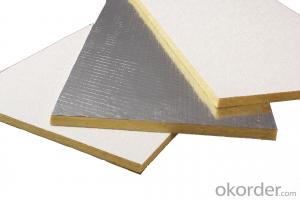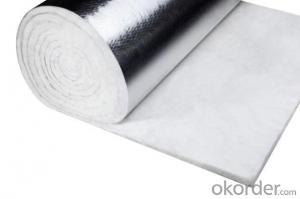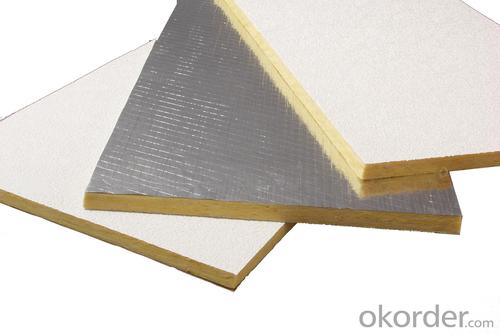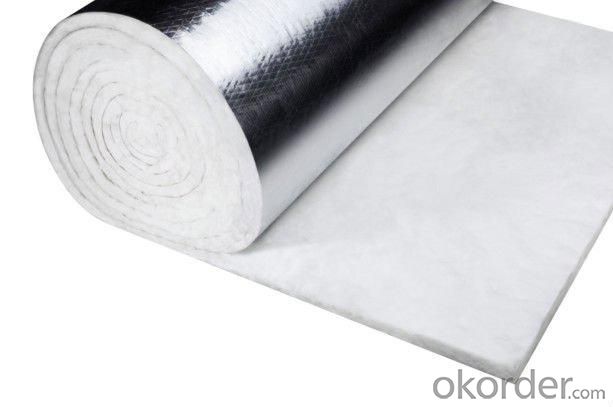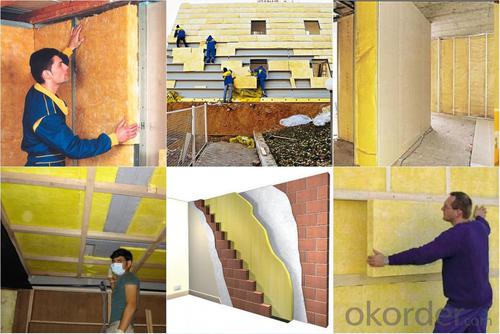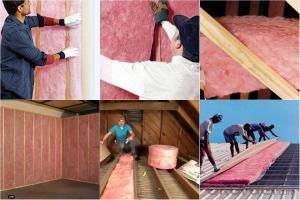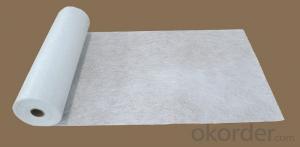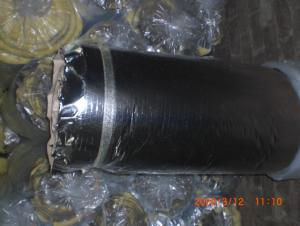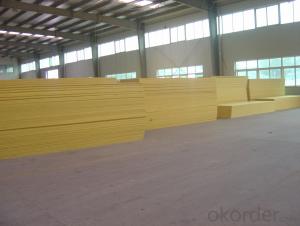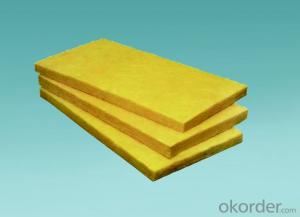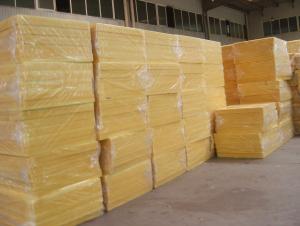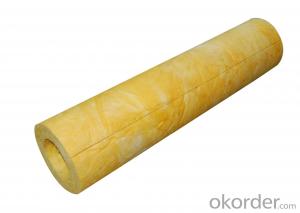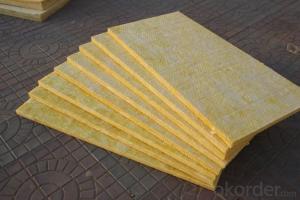Heat Insulation/ Fire Proof/Sound Proof Glass Wool Board
- Loading Port:
- Tianjin
- Payment Terms:
- TT OR LC
- Min Order Qty:
- 5000 m²
- Supply Capability:
- 20000 m²/month
OKorder Service Pledge
OKorder Financial Service
You Might Also Like
1.Description of Glass Wool Blanket:
Rockwool is manufactured primarily from a melt of volcanic rock. The molten rock is spun into wool and resin impregnated. Rockwool when pressed into rolls and sheets package air very well which make it an excellent and reliable insulator. All output types of Rockwool are a poor conductor of heat and sound, and therefore Rockwool is also considered an excellent and reliable thermal-acoustic insulator.
Rockwool is a mineral non-organic fibrous material of excellent and distinguished properties and characteristics. It is efficiently utilized in all fields of thermo-acoustic insulation; furthermore it is used in many industries and agricultural activities.
2.Main features of Glass Wool Blanket:
1) Heat-preservation and heat-insulation, sound absorption and noise reduction
2) Damp proof property
3) Excellent fire proof performance
4) Thermal stability, high temperature heat-stability, durability, high temperature shrinkage resistance
3.Glass Wool Blanket Images:
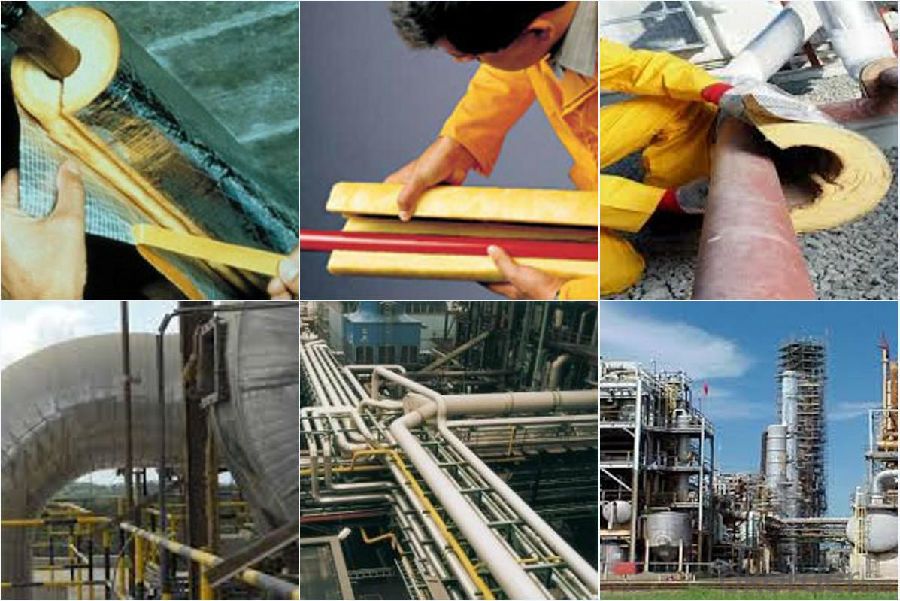
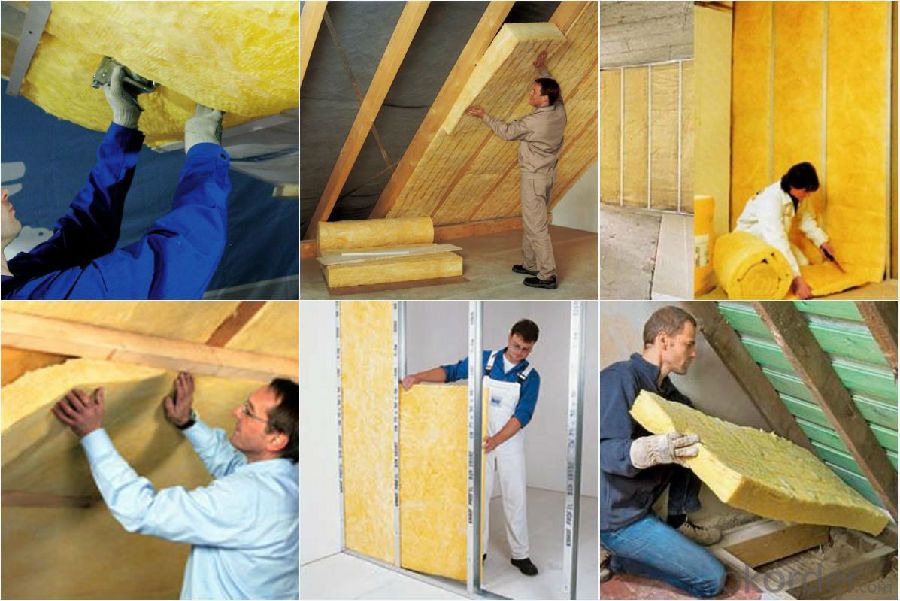
4. Glass Wool Insulation Blanket Technical Parameters:
Property | High/low temperature resistance, oil and fuel resistance, weathering resistance, O zone resistance etc. |
Shape | According to your requirement. |
Color | Any color is available ,according to your requirements. |
Material | NBR, CR, SBR, EPDM, IIR, NR, EP, Silicone, VITON etc. |
Hardness | 30-90ShoreA |
Delivery | In 10 days |
Packing | Plastic bag & carton box or according to your requirements. |
Application | Electronic field, industrial machine & equipment, house-hold appliance, telecommunication, automobile, medical equipment industry etc. |
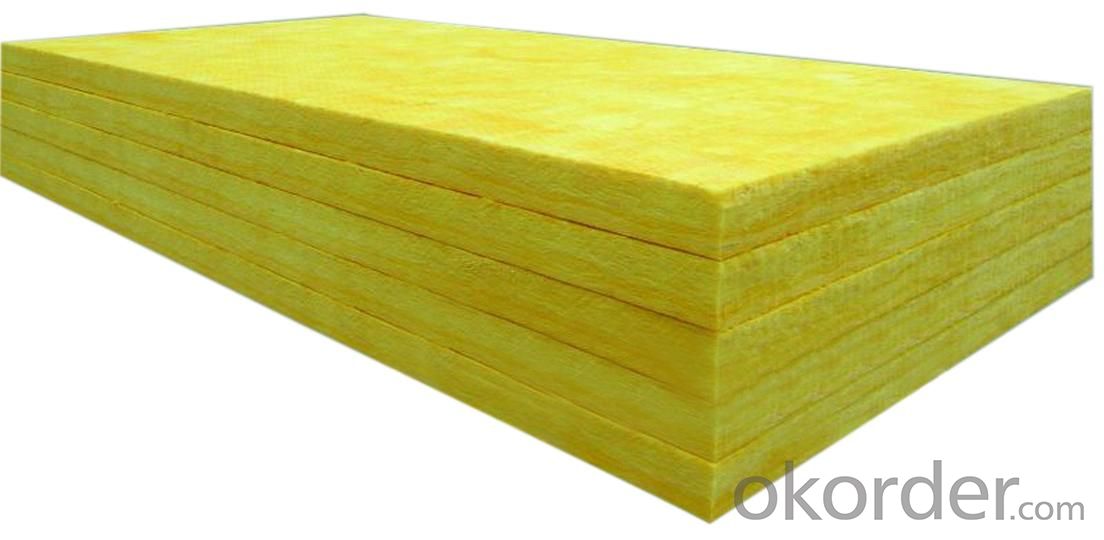
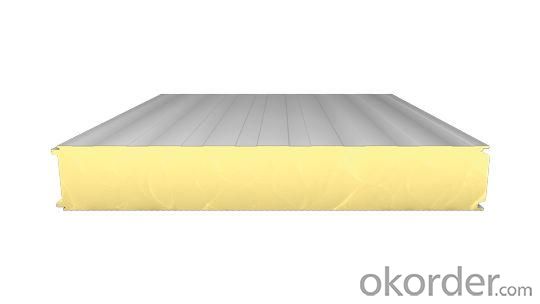
5.FAQ
We have organized several common questions for our clients,may help you sincerely:
①How about your company?
A world class manufacturer & supplier of Glass Wool Blanket is one of the large scale professional investment casting production bases in China,consisting of both casting foundry forging and machining factory. Annually more than 8000 tons Precision casting and forging parts are exported to markets in Europe,America and Japan. OEM casting and forging service available according to customer’s requirement.
②How to guarantee the quality of the products?
We have established the international advanced quality management system every link from raw material to final product we have strict quality test; We resolutely put an end to unqualified products flowing into the market. At the same time, we will provide necessary follow-up service assurance.
- Q: Can fiberglass mat tissue be used for lightweight construction?
- Yes, fiberglass mat tissue can be used for lightweight construction. It is a versatile material that offers high strength-to-weight ratio, making it suitable for various applications where weight reduction is desired without compromising structural integrity. Its lightweight nature enables easier handling, installation, and transportation, making it an ideal choice for lightweight construction projects.
- Q: Can fiberglass mat tissue be used as a reinforcement in concrete?
- Indeed, fiberglass mat tissue is a feasible option for reinforcing concrete. Composed of fine, lightweight material woven from fiberglass strands, this material is widely used in construction and industrial settings due to its exceptional strength and durability. By incorporating fiberglass mat tissue as reinforcement in concrete, the tensile strength and resistance to cracks can be significantly improved. Typically, it is applied in the form of a mesh or fabric, which is embedded within the concrete during its pouring phase. The presence of fiberglass strands in the mat tissue adds extra strength and reinforcement to the concrete, thereby reducing the likelihood of cracks and enhancing the overall structural integrity. This feature proves especially advantageous in areas where the concrete is subjected to heavy loads, such as bridges, concrete slabs, or precast concrete elements. Furthermore, fiberglass mat tissue possesses corrosion-resistant properties, which renders it a suitable choice in scenarios where the concrete comes into contact with moisture or chemicals. Unlike traditional steel reinforcement, it does not rust or deteriorate over time, thereby extending the lifespan of the concrete structure. To summarize, fiberglass mat tissue serves as a practical and efficient solution for reinforcing concrete. It offers improved strength, crack resistance, and corrosion resistance, making it a favored choice in various construction projects.
- Q: How does fiberglass mat tissue perform in high temperatures?
- Fiberglass mat tissue performs well in high temperatures as it has a high melting point and excellent heat resistance. It retains its strength and structural integrity even when exposed to elevated temperatures, making it suitable for various applications in high-temperature environments.
- Q: Is fiberglass mat tissue resistant to mold growth?
- Yes, fiberglass mat tissue is resistant to mold growth.
- Q: How is fiberglass mat tissue made?
- Fiberglass mat tissue is made by combining thin strands of glass fibers with a binder material, such as polyester or acrylic, to form a non-woven fabric. These glass fibers are typically manufactured through a process called pultrusion, where molten glass is pulled through tiny openings to create continuous filaments. The filaments are then chopped into shorter lengths and dispersed randomly onto a moving conveyor belt. As the fibers move along the conveyor, the binder material is sprayed onto them to ensure adhesion and form a cohesive mat. The mat is then heated to cure the binder and solidify the structure, resulting in a strong and flexible fiberglass mat tissue.
- Q: What is the thermal resistance of fiberglass mat tissue?
- The thermal resistance of fiberglass mat tissue is determined by several factors, including the mat's thickness, fiber density, and the inclusion of additional materials or coatings. In general, fiberglass exhibits low thermal resistance, signifying its excellent heat conductivity. Nevertheless, when employed as insulation, the thickness and density of the fiberglass mat can elevate its thermal resistance, enhancing its ability to reduce heat transfer. It is crucial to acknowledge that precise thermal resistance values may differ based on the product and application, hence it is advisable to consult the manufacturer's specifications for precise information.
- Q: What is the expected lifespan of fiberglass mat tissue in outdoor applications?
- The expected lifespan of fiberglass mat tissue in outdoor applications can vary depending on several factors such as exposure to weather conditions, maintenance, and quality of the material. However, on average, fiberglass mat tissue can last for approximately 20 to 30 years when properly installed and maintained.
- Q: Can fiberglass mat tissue be used for making surfboards?
- Surfboards can indeed be made using fiberglass mat tissue. This material, known for its lightweight yet robust properties, is commonly utilized in constructing surfboards. Typically, it is combined with epoxy resin to form a sturdy and durable surface. By incorporating fiberglass mat tissue, surfboards gain the strength and flexibility necessary to endure the demanding conditions encountered while riding waves. Moreover, the smooth and sleek texture of the material enhances the surfboard's performance and speed. In summary, fiberglass mat tissue is a favored option for constructing high-performance surfboards due to its exceptional strength-to-weight ratio.
- Q: Is fiberglass mat tissue resistant to mildew and rot?
- Yes, fiberglass mat tissue is resistant to mildew and rot. Fiberglass is made from fine glass fibers that are woven together to create a strong and durable material. These fibers are non-porous and do not absorb moisture, making fiberglass mat tissue highly resistant to the growth of mildew and the decomposition caused by rot. Additionally, fiberglass is often coated with protective finishes or treated with additives that further enhance its resistance to these types of biological degradation. This makes fiberglass mat tissue an excellent choice for applications where moisture or humidity is a concern, such as in bathrooms, outdoor structures, or areas prone to high humidity.
- Q: How does the width of fiberglass mat tissue affect its conformability?
- The width of fiberglass mat tissue can have a significant impact on its conformability. Generally, a wider width of fiberglass mat tissue allows for greater flexibility and adaptability to different surfaces and shapes. This is because a wider mat tissue can cover larger areas, allowing for smoother transitions and better conformability to irregular surfaces. On the other hand, a narrower width of fiberglass mat tissue may be more rigid and less able to conform to complex shapes or contours. It might struggle to properly adhere to uneven surfaces, resulting in potential gaps or imperfections. Additionally, a narrower width may limit the flexibility and maneuverability of the mat tissue during installation or application. Therefore, the width of fiberglass mat tissue is an important factor to consider when determining its conformability. A wider width generally offers better conformability and the ability to cover larger areas, while a narrower width may have limitations in adapting to complex surfaces.
Send your message to us
Heat Insulation/ Fire Proof/Sound Proof Glass Wool Board
- Loading Port:
- Tianjin
- Payment Terms:
- TT OR LC
- Min Order Qty:
- 5000 m²
- Supply Capability:
- 20000 m²/month
OKorder Service Pledge
OKorder Financial Service
Similar products
Hot products
Hot Searches
Related keywords
